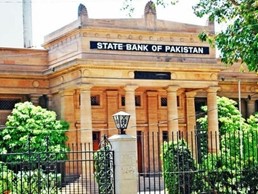State Bank of Pakistan (SBP) has removed the Minimum Deposit Rate (MDR) requirement for all conventional banks on deposits from financial institutions, public sector enterprises, and public limited companies. The MDR will now only apply to deposits of individual account holders. Market gossip has been swirling about this development for the last few days. This shall be effective from January 01, 2025.
§ It will benefit banks with a higher mix of corporate deposits, as they are no longer required to pay any MDR. Banks will now pay negotiated rates to corporates.
§ As per the 2023 annual accounts of all listed banks, the total deposit is Rs27trn, of which 53% (Rs14trn) are corporate deposits. The top conventional banks with a higher corporate deposit mix are Bank of Punjab (BOP), Bank of Khyber (BOK), Samba Bank (SBL), National Bank (NBP) and Askari Bank (AKBL) in the range of 65-88%. Other major banks like MCB Bank (MCB), Bank Al Habib (BAHL), Habib Bank (HBL), and United Bank (UBL) have exposure to 35-40%.
§ Below is the sensitivity analysis, in which we have assumed a 50-100bps decline in corporate deposit costs. We also believe that it will be difficult for banks to reduce rates further due to the competitive environment and the risk of these deposits shifting to alternative sources, such as investments in T-bills.
§ This will have a positive impact on Banks’ earnings, on average, by 7%, with a 50bps reduction in deposit cost. This is our initial understanding, and we await further clarification from the banks.
§ SBP has also decided that Islamic Banking Institutions (IBIs) shall pay profit on their PKR saving deposits (excluding deposits of financial institutions, public sector enterprises and public limited companies) equivalent to at least 75% of the weighted average gross yield of all pools of an Islamic Banking Institutions (IBIs).
§ to determine each pool’s gross yield, the pool’s monthly gross earnings shall be divided by the monthly average assets of the pool (excluding fixed assets). However, the pool(s) created by IBIs for Shariah-compliant standing ceiling facilities and Shariah-compliant open market operations (OMOs) will be excluded while calculating the weighted average gross yield of the pool(s).
§ In the case of Meezan Bank, the existing annualized gross yield on assets (net of fixed assets) is 15.2%, and based on our understanding, 75% of 15.2%, i.e. 11.4%, has to be paid.
§ However, the current weighted average cost of the bank’s deposit is 6.1% and adjusted for current accounts, the deposit cost is 13.1%. At the surface, it seems like Meezan is already paying more than the minimum required of 11.4% (i.e. 13.1%) to depositors.
§ However, according to the Meezan bank website, the bank paid depositors a return of 2.4%- 13.09%. According to a few branch managers, the majority of the saving deposits are tied in 7.5% yielding Meezan Bachat tier II account. Assuming an average of 9-10% being paid to retail accounts, the bank will be required to pay an additional 1.5-2.5% to its retail deposit holders of Rs933bn.
§ Our initial analysis is that this will have a pre-tax impact of Rs15-20bn and an after-tax impact of Rs7.5-10bn on Meezan’s profit. This translates into a per share impact of Rs4-6 per share, which is 8-11%. Today Meezan share is down 10% already (intra-day down 15% from peak)
§ We will issue another version of this report with more details after discussing it with the Islamic Banks and SBP.
Courtesy – Topline Pakistan Research


